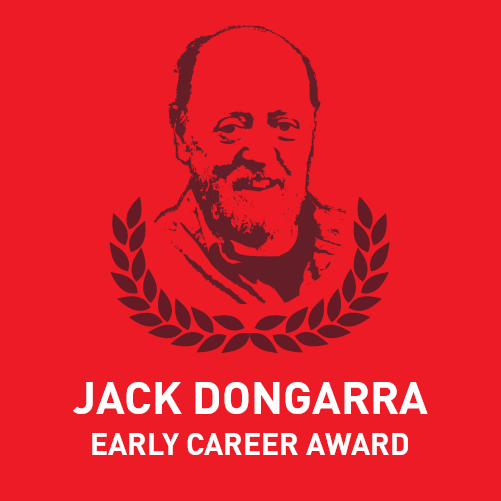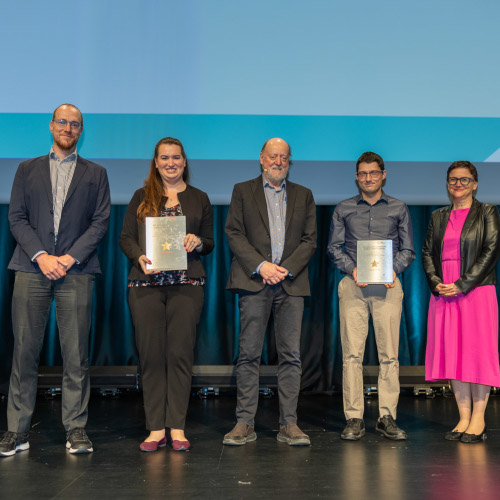JACK DONGARRA EARLY CAREER AWARD
The ISC High Performance Jack Dongarra Early Career Award and Lecture Series is an annual event that honors the remarkable contributions of Professor Jack Dongarra to the field of high performance computing and the HPC community. This series became a part of the ISC conference series starting in 2023.

The award is intended for an up-and-coming researcher who has been a catalyst for scientific progress in their field. The researcher should have between 4-10 years of experience after completing their PhD.
ISC recognizes the difficulties that families and individuals encounter in their professional journeys. We are open to the possibility of extending the eligibility period by as much as four years for individuals who have become parents, served as primary caregivers, or faced substantial personal challenges following their graduation. Nominees are requested to furnish the graduation date of the nominator and the rationale for seeking an extension beyond the typical 4-10 year post-PhD timeframe in their nomination.
The award focuses on outstanding individuals who have made exceptional contributions to high-performance computing, including numerical algorithms and software libraries, computational sciences, mathematics, and machine learning.
 Amanda Randles of Duke University’s Biomedical Engineering Department and Edgar Solomonik of the Department of Computer Science at the University of Illinois receive the ISC 2024 Jack Dongarra Early Career Award.
Amanda Randles of Duke University’s Biomedical Engineering Department and Edgar Solomonik of the Department of Computer Science at the University of Illinois receive the ISC 2024 Jack Dongarra Early Career Award.
Each recipient receives 2,500 euros and a certificate of recognition.
TIMETABLE
| Nomination Deadline |
closed |
| End of selection process |
beginning of April |
| Award winner announcement | beginning of April |
DIVERSITY AND INCLUSION
We welcome nominations of researchers who meet the requirements regardless of gender, nationality, ethnicity, social origin, disability, sexual orientation, etc.
A nomination is a report explaining why a candidate is worthy of receiving an award. The success of a nomination depends first and foremost on the quality of the candidate, but this must be adequately reflected in the description and, where appropriate, in the endorsements. Decisions about candidates are made almost exclusively on the basis of the information contained in the nomination and endorsements, which is why the quality of these documents is of crucial importance.
- The researcher should have between 4-10 years of experience after completing their PhD.*
- The nominator nor the nominee is allowed to nominate themselves.
- Past honorable mentions can be nominated again as long as they are still eligible.
The selection process will be subject to the scrutiny of an international committee headed by the ISC Program Chair Prof Michela Taufer, who co-incidentally holds the Jack Dongarra Professorship in HPC within the Department of Electrical Engineering and Computer Science at the University of Tennessee, Knoxville, USA.
*ISC recognizes the difficulties that families and individuals encounter in their professional journeys. We are open to the possibility of extending the eligibility period by as much as four years for individuals who have become parents, served as primary caregivers, or faced substantial personal challenges following their graduation. Nominees are requested to furnish the graduation date of the nominator and the rationale for seeking an extension beyond the typical 4-10 year post-PhD timeframe in their nomination.
- Michela Taufer, University of Tennessee, USA (Chair)
- Torsten Hoefler, ETH Zurich, Switzerland (Co Chair)
- Rosa Badia, Barcelona Supercomputing Center, Spain
- Ewa Deelman, USC Information Sciences Institute, USA
- Jack Dongarra, University of Tennessee, USA
- Horst Gietl, ISC Fellow
- Satoshi Matsuoka, RIKEN Center for Computational Science, Japan
- Dan Reed, University of Utah, USA
The award winner's lecture will be published in the International Journal of High Performance Computer Applications.
